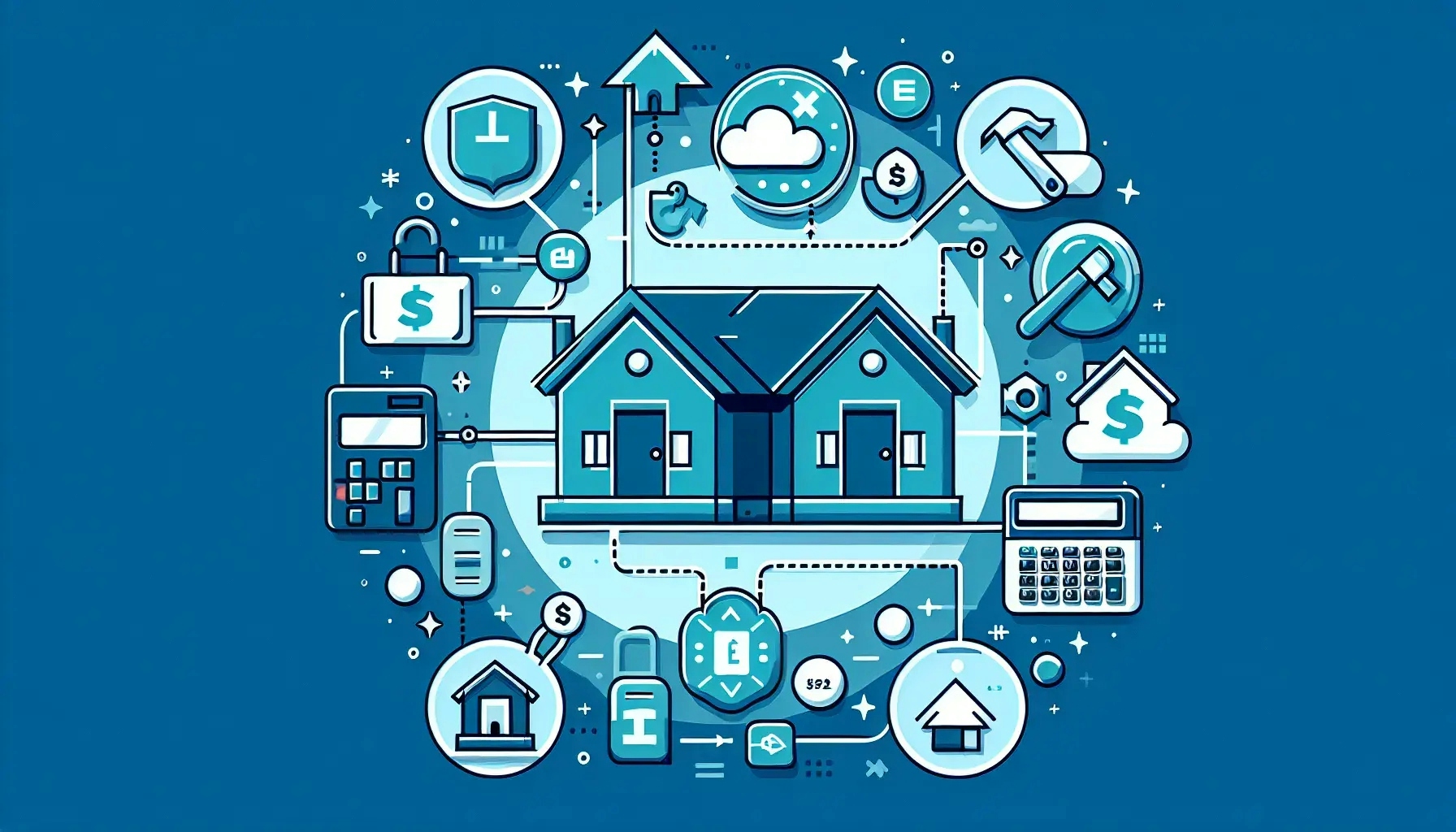Welcome to this comprehensive guide on understanding the differences between adjustable and fixed-rate mortgages. This blog post will delve into the intricacies of these two types of mortgages, helping you make an informed decision when it comes to choosing the right mortgage for your specific needs. We'll explore the advantages, disadvantages, and ideal scenarios for both adjustable and fixed-rate mortgages.
Understanding Mortgages: The Basics
Mortgages represent a significant aspect of the financial world. They are loans taken out to purchase property or land, paid back over a specified period. Two main types of mortgages exist: adjustable-rate and fixed-rate mortgages.
An adjustable-rate mortgage (ARM) has an interest rate that fluctuates over time. This rate is typically tied to a specific financial index. On the other hand, a fixed-rate mortgage (FRM) has an interest rate that remains constant throughout the loan's life.
Understanding these two types of mortgages is crucial when planning to buy a home. Your choice between an ARM and an FRM can significantly impact your financial future. It's essential to consider your financial situation, your long-term plans, and the current economic climate when making this decision.
Delving Deeper into Adjustable-Rate Mortgages
Adjustable-rate mortgages come with an interest rate that changes over time. This rate is usually fixed for an initial period, after which it adjusts periodically. The adjustments are based on changes in a reference interest rate, such as the U.S. Prime Rate or the London Interbank Offered Rate (LIBOR).
ARMs can be beneficial for borrowers who expect their income to increase over time or who plan to sell their home before the initial fixed-rate period ends. However, they also come with a degree of uncertainty, as future rate adjustments can be unpredictable.
It's also worth noting that ARMs often come with rate caps. These caps limit how much the interest rate can change during a specific period. There are two types of caps: periodic adjustment caps and lifetime caps. The former limits how much the rate can change at each adjustment period, while the latter restricts how much the rate can change over the life of the loan.
A Closer Look at Fixed-Rate Mortgages
Fixed-rate mortgages, as the name suggests, have an interest rate that remains the same for the duration of the loan. This type of mortgage provides stability and predictability, as your monthly payments will not change over time.
Fixed-rate mortgages are ideal for individuals who prefer a steady, predictable payment schedule and those who plan to stay in their home for a long time. However, they often come with a higher initial interest rate than adjustable-rate mortgages.
One of the main advantages of fixed-rate mortgages is budgeting simplicity. Since the interest rate doesn't change, you'll know exactly what your mortgage payment will be each month. This can make it easier to plan your finances and ensure that you can comfortably afford your mortgage payments.
The Pros and Cons of Adjustable and Fixed-Rate Mortgages
Both adjustable and fixed-rate mortgages have their advantages and disadvantages, and the best choice depends on your individual circumstances.
Adjustable-rate mortgages can offer lower initial interest rates, which can result in lower initial monthly payments. They can also be a good choice if you plan to move or refinance before the end of the initial fixed-rate period. However, the uncertainty of future interest rate changes can be a significant drawback.
Fixed-rate mortgages, on the other hand, offer stability and predictability. You'll know exactly what your mortgage payment will be each month, making it easier to budget. However, they often come with higher initial interest rates than adjustable-rate mortgages, which can result in higher initial monthly payments.
Making the Right Choice: Adjustable vs Fixed-Rate Mortgages
Choosing between an adjustable and fixed-rate mortgage is a significant decision that can impact your financial future. It's essential to consider several factors when making this decision.
Consider your financial stability, your future income expectations, and how long you plan to stay in your home. If you expect your income to increase in the future and plan to move before the end of the initial fixed-rate period, an adjustable-rate mortgage may be a good choice.
On the other hand, if you prefer stability and predictability and plan to stay in your home for a long time, a fixed-rate mortgage may be a better option. Always remember to consider the current economic climate and future interest rate predictions when making this decision.
Seeking Professional Advice
While this guide provides a comprehensive overview of adjustable and fixed-rate mortgages, it's always a good idea to seek professional advice when making significant financial decisions.
A mortgage broker or financial advisor can provide personalized advice based on your specific circumstances. They can help you understand the potential risks and rewards of each type of mortgage and guide you in making the best decision for your financial future.
Wrapping Up: Adjustable vs Fixed-Rate Mortgages
Understanding the differences between adjustable and fixed-rate mortgages is crucial when planning to buy a home. Each type of mortgage has its advantages and disadvantages, and the best choice depends on your individual circumstances. Always consider your financial situation, your future plans, and the current economic climate when making this decision. And remember, seeking professional advice can be invaluable in navigating this complex decision.

